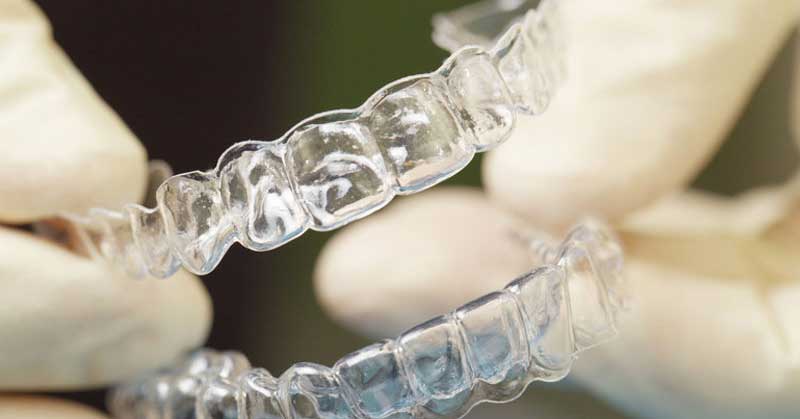An occlusal splint – also referred to as a “night guard” or “bite guard” – is a dental appliance designed to protect a patient’s teeth from damage that might occur as a result of teeth grinding and/or temporomandibular joint disorders (TMJD).
If you suffer from bruxism, or the habit of grinding your teeth while you sleep and/or clenching your jaw during the day, you will very likely cause damage to your teeth after a certain period of time. Bruxism can cause other symptoms as well, such as soreness in the jaw muscles and headaches. These symptoms can interrupt a person’s sleep and can even extend into the daytime hours. To alleviate this discomfort and to prevent tooth damage, patients can wear an occlusal splint, which is an appliance that is custom-made and intended to be worn while the patient is sleeping.
While an occlusal splint may not completely resolve the issues associated with bruxism, it can definitely help to improve the patient’s quality of sleep and ease some of the symptoms associated with teeth grinding. But it’s also important to address the root problem. Often, people with bruxism experience too much stress in their daily lives, which can lead to teeth grinding while they sleep and/or clenching their jaws throughout the course of each day. If you suffer from bruxism, you should also ask your dentist or doctor about other types of treatments that can alleviate stress, including any or all of the following:
- Exercise more often. Exercise is an excellent way to reduce your stress, and that in turn will help you to clench your jaw and grind your teeth less.
- Try relaxation exercises. When you feel anxious, try deep breathing to reduce your stress level. Meditation and/or yoga can also help.
- Consider skipping alcohol and caffeine. Both of these can increase the likelihood of grinding your teeth, so avoid both – particularly in the evening before you go to bed.
- Make a conscious effort to change the habits during the day. You may be clenching your teeth without even realizing it. Think about this during the course of each day and make a conscious effort to avoid this habit by keeping your lips closed and your teeth slightly separated.
- Rest your jaw. If your jaw muscles are sore from clenching or grinding your teeth, give them a break during the day by avoiding chewy and hard foods.
If you think you could benefit from wearing an occlusal splint, talk to your dentist for more information.

